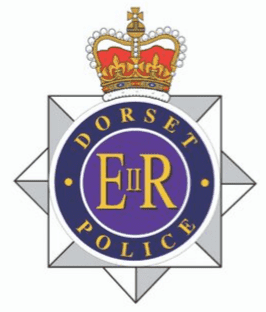The role of a police detective
Question everything
As a detective you understand that crime is a product of complex issues, often stretching through generations and controlling whole estates.
Colleagues, local residents, other agencies and victims of crime all need you to get it right. If you know how to manage, investigate and stay focused, a detective role is for you.
Detectives are focused, work well under pressure and respond quickly to new information with a determined, positive attitude.
You have people relying on you, you lead by example, you stay calm, and make choices that have a real impact on people’s lives.
Day to day, you’ll manage investigations, and the people involved. You are proactive, you see all the angles, and you respond quickly to an ever-changing case load and operating environment.
As a police detective you know that your work means you encounter vulnerable people and work collaboratively with multi agency teams. You know change comes when you lead with empathy, act on intelligence and commit to a better future.
On the National Detective Programme, we’ll work closely with you to develop your skill set so you can communicate with the public and victims.
question
everything
Solve the problems facing society through a career as a detective.
As a police detective, the most serious crimes land on your desk. You’re the key role responsible for bringing justice to victims impacted by crime. You need the resilience to overcome obstacles, the clarity to never take things at face value, and the ability to communicate with people from all walks of life and gain their trust.
Each case is unique, and often relies upon the quality of the evidence, the emotional state of the victims, your ability to persuade and influence, and persevere right up until the end.
Investigations can be lengthy, you’ll learn to maintain relationships and deal with setbacks.
As a detective there is no room for assumptions. Being diligent and collecting evidence based on facts are all part of each line of enquiry you’ll follow.
You could be investigating theft and burglary, missing persons, domestic abuse or knife crime and hate crime incidents. You’ll be driven to protect victims of crime from future harm. You’ll learn about humans, how they behave, and how they shape the fabric of society.
You'll support and bring justice to victims impacted by serious crime.
Hear from our police detectives
Never thought of yourself as a police detective? Want to know if you’d fit into our programme? Want to understand the day-to-day role? Curious about the kind of people who decide to become police detectives?
Police Now supports graduates from diverse backgrounds to be a success on the programme. Listen to some of our participants as they share their stories.
The skills I bring to my role as a detective
I want to become a leader

Working as a police detective is a demanding but rewarding job.
If you’re a university finalist or graduate who notices what others don’t, explore what’s needed to be successful in this role.
Core requirements
To be eligible to join our programmes you must:
- Have achieved, or be working towards, a 2.2 undergraduate degree by the programme start date.
- Be a British Citizen or have indefinite leave to remain and right to work in the UK.
- Have lived in the UK for the last three years.
Before you apply, make sure you read our full eligibility criteria.
Beyond the programme
Following completion of the two-year Police Now programme, you’ll be able to progress up through the ranks.
What sets you apart is your investigative mindset, your ability to connect with people, and your critical thinking.
You notice what others don't and have the resilience to follow it through to the end.
Help and useful links
FAQs
Do you have questions about applying? From choosing a programme to checking your eligibility.
TALK TO OUR TEAM
Our recruitment team are here to advise and support you during the application process.
REGISTER YOUR INTEREST
Join our mailing list to keep updated on career opportunities, Police Now insights and news.
HOW TO APPLY
Access top tips and guidance on the application process for our national graduate programmes.

